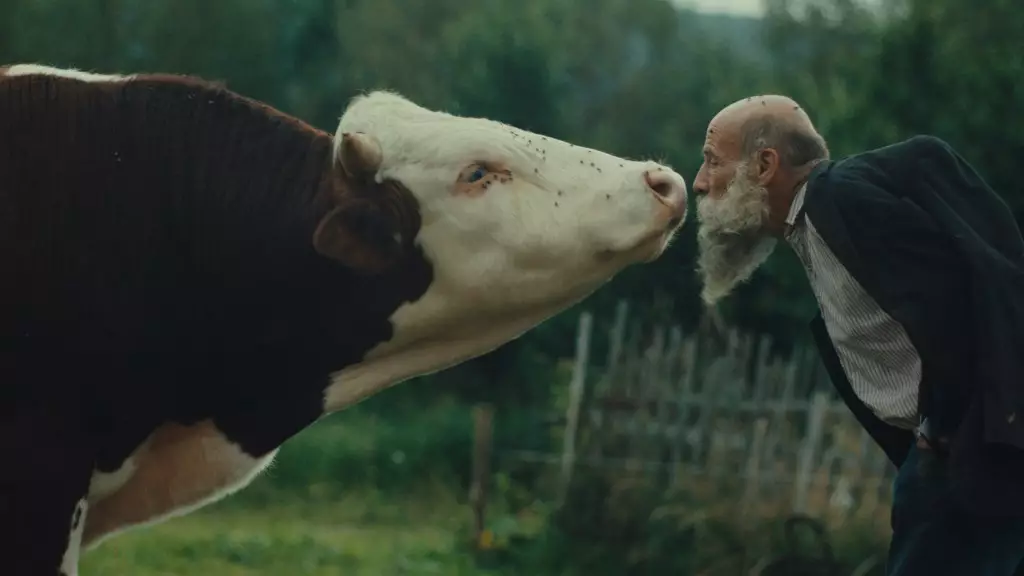In a world obsessed with glossy appearances and mainstream narratives, films that shed light on society’s overlooked corners often serve as uncomfortable mirrors. The recent documentary centered on two aging brothers living in the Bohemian Forest exemplifies this. While critics have lauded its authenticity and intimacy, it also exposes society’s failure to truly understand and appreciate those who exist outside the sanitized mainstream. These individuals—whose lives are marked by simplicity, resilience, and an often-incomprehensible rejection of modernity—are systematically dismissed, misunderstood, or ignored altogether.
True empathy requires deep engagement beyond surface-level judgments. It demands acknowledgment that these lives, though unconventional, are not inherently tragic or grotesque—they are a testament to personal sovereignty in the face of societal pressures. The brothers, steeped in local wisdom and self-education amid a crumbling farmhouse, challenge us to reconsider what it means to live authentically. Instead of dismissing their existence as mere eccentricity, society should view it as a valuable counterpoint to the relentless acceleration of modern life. Their choice to withdraw, to live in harmony with nature and their own philosophies, signifies a deliberate rejection of consumerism and homogenization—values that many in urban environments have forgotten or forsaken.
Questioning the Scope of ‘Progress’: A Gluttonous Pursuit?
As the documentary unfolds, it hints at a broader conversation about progress and societal priorities. The brothers’ past involvement in activism, their cleanup of political oppression, contrasts sharply with their current state of isolation. This juxtaposition underlines a paradox embedded within contemporary liberalism: the ideal of progress can often become a unidirectional march that leaves behind those who refuse to conform.
It is tempting to view their rejection of societal norms as regression—something to be remedied or corrected. But such judgments ignore the deeper insight that genuine progress might mean reevaluating what constitutes societal advancement at all. Are we truly progressing if countless individuals are forced into mental or physical exile from a system that values productivity over well-being? The brothers’ lives seem to embody a form of resistance—a refusal to participate in a relentless cycle of economic and cultural exploitation. They have deliberately minimized their footprint, prioritizing intellectual and spiritual freedom over material gain.
This critique calls into question the very nature of modern civilization, which often equates success with expansion, consumption, and superficial status. Their simple, unpretentious existence reveals the hollowness of this paradigm. Perhaps true progress should involve fostering environments where diverse ways of living are respected and preserved, rather than eradicated. Society’s failure to do so exemplifies its shortsightedness—its blind obsession with innovation often leaves behind those who do not—or cannot—keep pace.
Deconstructing Narrative and the Myth of Objectivity
Films like this are powerful because they challenge us to reconsider who holds the “truth.” The documentary’s understated storytelling—deliberately sparse in exposition—serves as a critique of how mainstream media tends to commodify human suffering or eccentricity. By withholding comprehensive backstories, the filmmakers invite viewers to confront the ambiguity and complexity of these characters’ lives on their own terms.
However, this very approach leaves gaps—gaps that can either be fertile ground for empathy or fertile ground for misjudgment. Without context, viewers may project their own biases, perceiving the brothers’ lifestyle as merely bizarre or backward. Yet, their refusal to conform is an act of sovereignty that deserves recognition. Despite societal disdain, they have crafted lives rooted in their own philosophies, affirming that non-conformity can be a form of resistance.
From an epistemological perspective, this also raises questions about how stories are constructed and whose narratives are favored. Mainstream storytelling often simplifies or sensationalizes marginalized lives, reducing them to caricatures. In contrast, this documentary attempts to approach its subjects with nuance, even if the result sometimes feels incomplete or unsatisfying. This method compels viewers to confront their assumptions and recognize that the gaps often contain vital truths—truths about human dignity, resilience, and the cost of societal neglect.
Reflections on Society’s Blind Spot
Ultimately, this film lays bare the societal propensity to overlook, dismiss, or commodify those who don’t fit accepted molds. The brothers’ lives, filled with philosophical musings, crude humor, and a profound sense of autonomy, serve as a reminder of what society neglects when it invests in superficial indicators of worth. We tend to value productivity, status, and conformity—traits that these two men deliberately dismiss as irrelevant.
Their existence provokes an essential question: are we the true savages not because of their lifestyles, but because of our incapacity to accept human diversity? The modern liberal outlook champions inclusivity on paper but often falls short in practice

